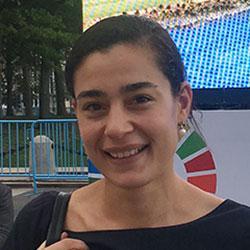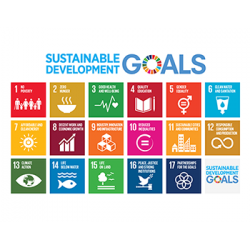UrbanSDG Campaign Statement
Sustainable cities and regions matter now more than ever. They hold the key to the future of our societies, our economy and planetary health. Through a series of bold and visionary actions, we can collectively grasp that future and make it real, for all people everywhere.
Today, more than half the world’s 7.3 billion people and around three quarters of its economic output (over $50 trillion) are in urban centres of all sizes. These concentrate most new investments and most new jobs and so also most opportunity. Between now and 2030, almost all the growth in the world’s population (over one billion people) will be in urban areas – mostly in Asia and Africa.
Yet, will these new urban dwellers be added to the current billion who live in slums or informal settlements with high levels of overcrowding. Most have no piped water connection and poor access to sanitation, drainage, waste collection, clean energy, education and healthcare. Close to 70 percent of greenhouse gases emissions come from urban consumers.
Is it possible to transform our cities, towns and regions, to both address the challenges of today and embrace the opportunities of sustainable development for our children tomorrow?
In the words of UN Secretary General, Ban Ki-Moon “Our struggle for global sustainability will be lost or won in cities”. Mayor Eduardo Paes of Rio de Janeiro, host to the 2016 Olympics said “…as a global mayor, and one whose city is, who will forever be linked to the global Sustainable Development agenda, I cannot stress enough the fact that without an urban goal the SDGs will be incomplete”
On September 22 in New York, at a meeting convened by the Sustainable Development Solutions Network (SDSN) and the global urbanSDG Campaign, ten of the world’s leading cities representing all six continents will show how this struggle has been joined. Further they will outline how it can be won through a new ‘social contract’ and partnership between countries, cities and regions, citizens and civil society and private enterprise.
The Mayors of New York City, Rio de Janeiro and Paris will explain to UN Ambassadors, political representatives and private sector partners just what can be achieved by city and regional governments to achieve local, national and global sustainability.
They will outline the steps required to make the new development and urban agenda a reality for over 3.5 billion people now living in cities and towns, to: promote, full and productive employment; end hunger and poverty in all its forms; ensure healthy lives and well-being at all ages; ensure inclusive and equitable quality education; promote gender equality; build resilient cities with infrastructure able to protect them from climate change, ensure availability of water and sanitation and access to sustainable modern energy systems for all – a potential multi-trillion dollar transformative development and urban agenda under consideration at the UN, national capitals and international institutions across the world over the next year.
Most important they will reiterate their support for, and outline concrete steps over the next 15 years, to achieve the proposed UN Sustainable Development Goal (SDG 11) to “make cities and human settlements inclusive, safe, resilient and sustainable,” that was adopted by consensus by the UN Open Working Group (OWG) in July 2014.
This came at the culmination of a year-long global campaign by hundreds of local governments and collective engagement of the world’s leading urban groups and institutions around the urbanSDG Campaign that includes: C-40, Cities Alliance, Communitas, ICLEI, Mistra Urban Futures, Metropolis, SDI, SDSN, UCLG, UN-Habitat, and WUC, working together to enable the convergence between the new development, urban and climate agendas, culminating in 2016 at Habitat III. See: www.urbanSDG.org.
* For more information on the SDG process please see a recent article on Citiscope. *
Question can be directed to:
Prof. David Simon, Director Mistra Urban Futures, david.simon@chalmers.se , +46 (0)31 772 4930







